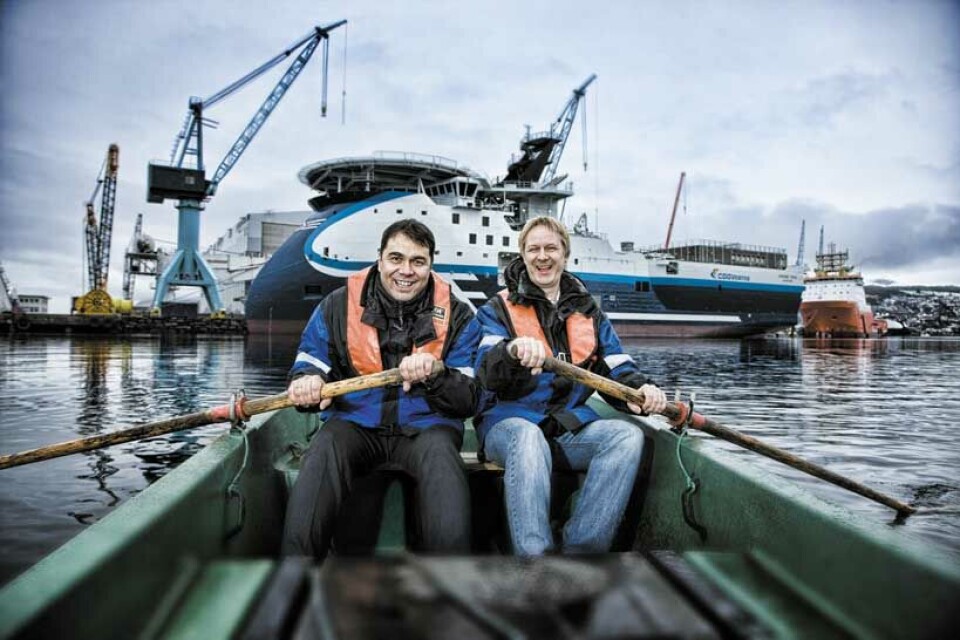
Inspection of the “Ulstein standard”
Norway-based Ulstein Verft specialises in the construction of advanced offshore support vessels, and delivers 3-5 newbuilds annually. While the market recession hasn’t had any impact on their orders on hand, new orders have been slow over the past year. However, the shipbuilder feels that prospects are promising in a number of vessel categories in 2010 and 2011.
Denne artikkelen er tre år eller eldre.
The offshore vessel industry entered a global recession in 2008, a slowdown that was anticipated by the industry itself. “We have gone from an all-time high and an overheated market to a situation over the past couple of years where almost no orders have been placed on offshore support vessels worldwide. Now we see a slight change towards a more normalised situation, with shorter delivery times on vessels. We have orders until the third quarter of 2011, which is a typical time horizon for us,” says Ulstein Verft deputy managing director Harald Møller.
Ulstein Verft has a reputation for being a yard that delivers on the contracted date at the specified price and quality. While the high-peak period has been difficult due to major equipment delivery delays on several projects, Ulstein Verft has still delivered according to contract.
“Our goal is to reach the “Ulstein standard” for all Ulstein Verft projects. This standard can’t be found on a piece of paper or a contract – it exists in our ideals. Still, we put all of our efforts into reaching it due to our pride in high-quality deliveries. Everything is fully tested to be certain that a vessel from us is robust, functional and works properly,” says Ulstein Verft sales manager Håvard Stave.
Both Stave and Møller believe that more shipbuilding contracts will be signed in 2010 and 2011 than in 2009. “We expect an increased demand for large offshore vessels for anchor handling, subsea installation, construction and wind farming, and possibly also seismic activities,” says Møller.
“Several of these vessels will be designed to operate in deeper water and in more extreme conditions such as remote waters and ice. As ship traffic is moved into these extreme conditions, demand for environmentally friendly vessels will increase. This might affect the existing fleet, as some of the vessels operating at present may not fulfil the future standards. Some vessels will abandon offshore operations, and there will be an ever-increasing demand for new ships. We’re keeping an eye on the market situation, and continuously develop our products and services. When the requests come about, we’ll be ready,” concludes Stave.











